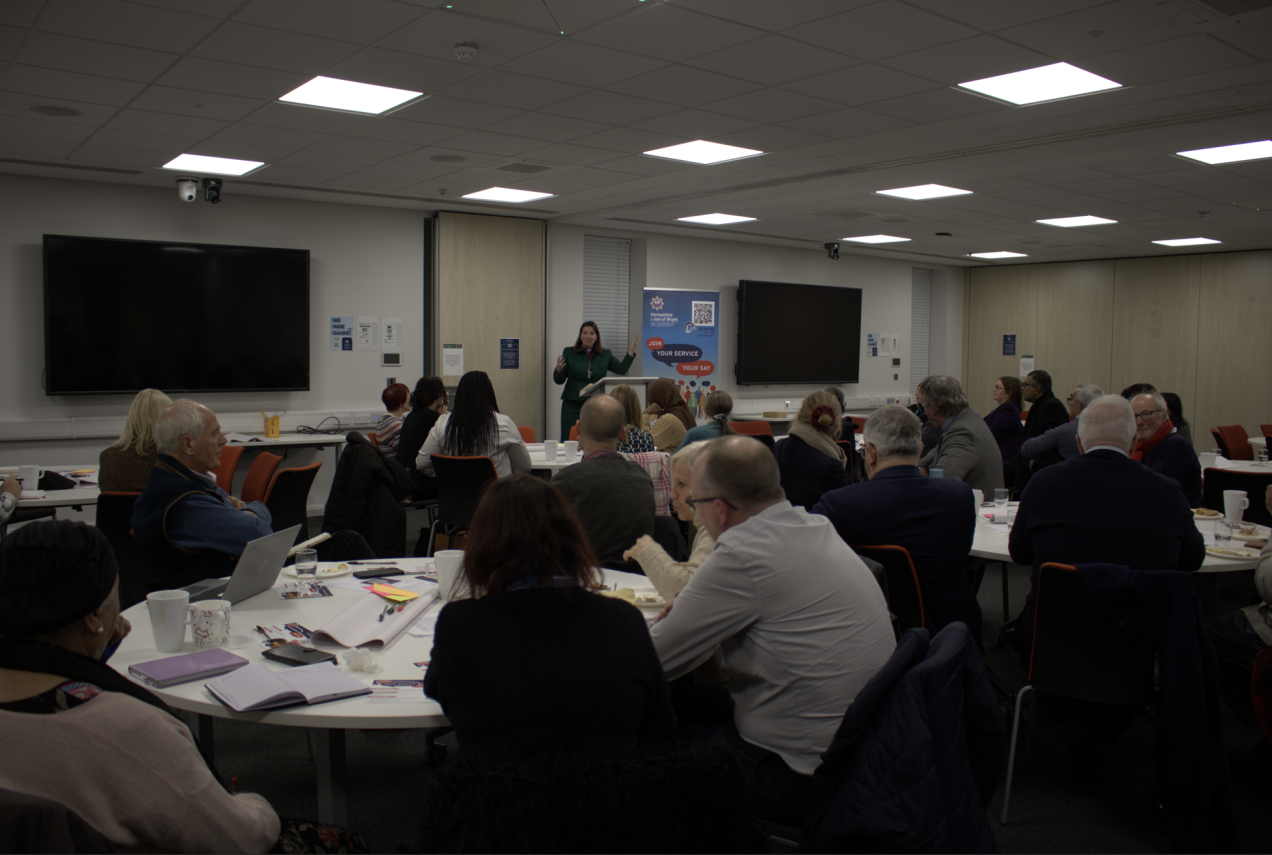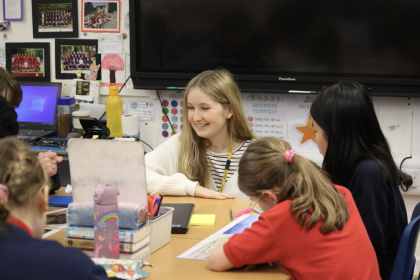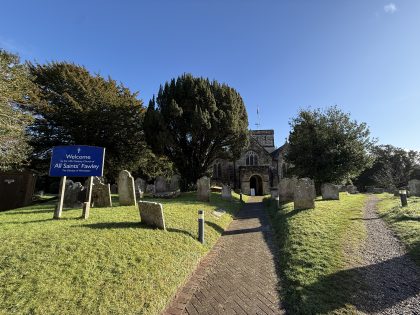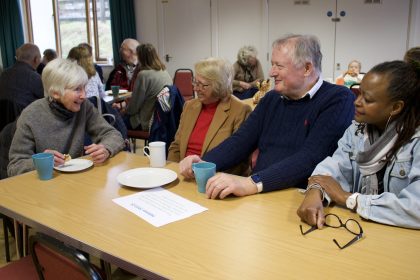Bishop Rhiannon has hosted the first meeting of the Hampshire and Solent Faith and Belief forum which aims to unite communities and to improve the lives of others.
The event brought together members from a wide range of public sector services, including the police, fire service and NHS, alongside representatives from gurdwaras, temples, the Hindu Society, the Southampton Council of Faiths, and the Basingstoke Interfaith group.
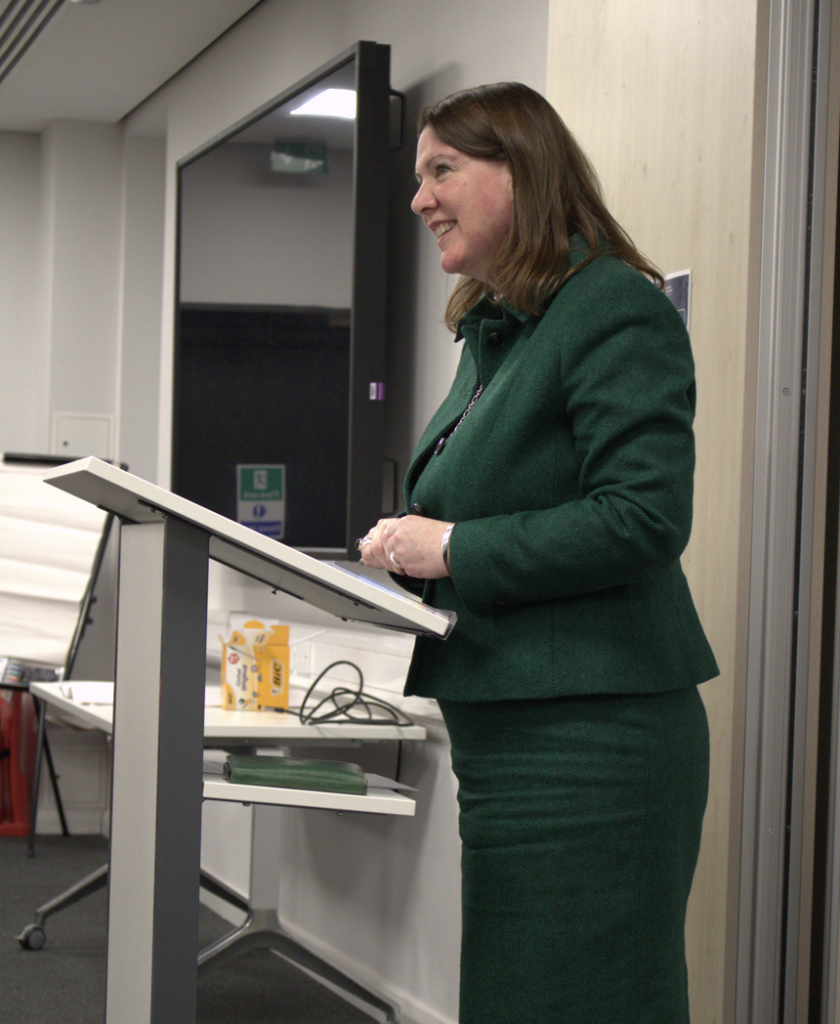
Bishop Rhiannon said, “We’ve got people here from lots of different faiths and from the police and the fire and the NHS – all these different places. It’s important because it’s all about relationships. If we can build deeper connections, we will be able to partner more effectively on all sorts of things to create a stronger Hampshire and the Isle of Wight. You never quite know who’s going to click with who and how it’s going to unfold but I believe that when we know each other, we can work together more easily. I can already see lots of people having conversations for the first time so my prayer is that all sorts of good will come out of this.”
The gathering was prompted by recent changes in the public sector, such as the reorganisation of local government and creation of unitary authorities and the NHS 10-year plan.
Ed Walton, Equality, Diversity, Inclusion and Compliance Manager for NHS Hampshire and Isle of Wight, orchestrated the meeting to highlight how faith communities can work more closely together alongside the public sector.
He said, “This is an opportunity to discuss what the changes will mean for faith communities and how we can bring particularly NHS care closer to communities. So that could mean health interventions at a church, at your mosque, at your local gurdwara. Alongside that we also want to celebrate and champion the contribution that faith communities make to social cohesion, bringing people together and fostering a sense of community in Hampshire and the Isle of Wight. I think a big element in the Christian faith – the spirit of neighbourliness – aligns very well with the direction of travel in the public sector about more integrated neighbourhood working.”
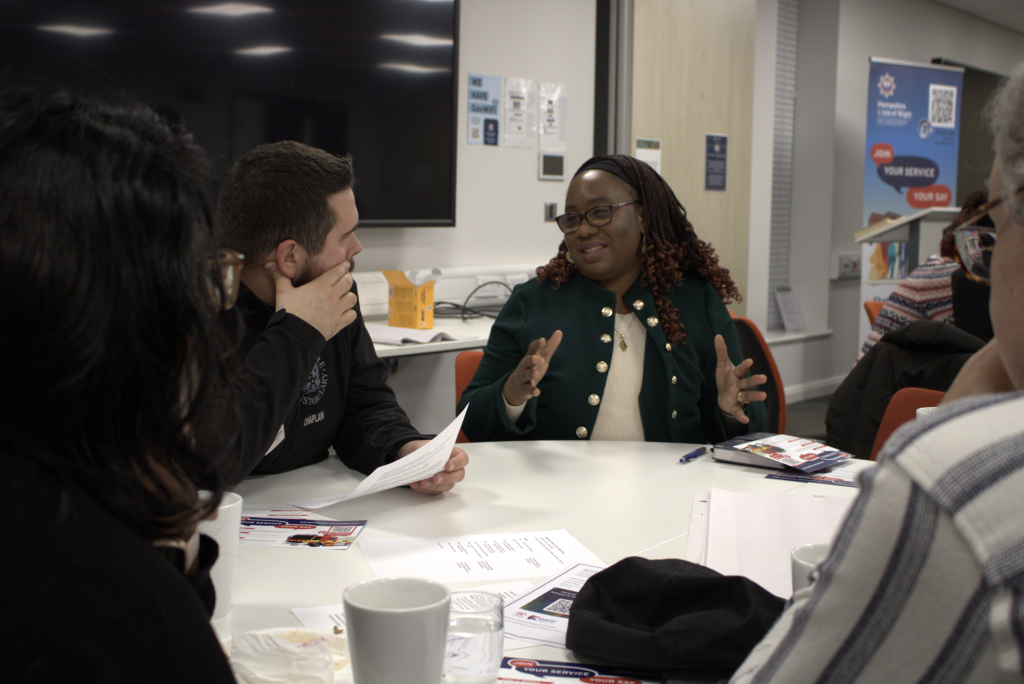
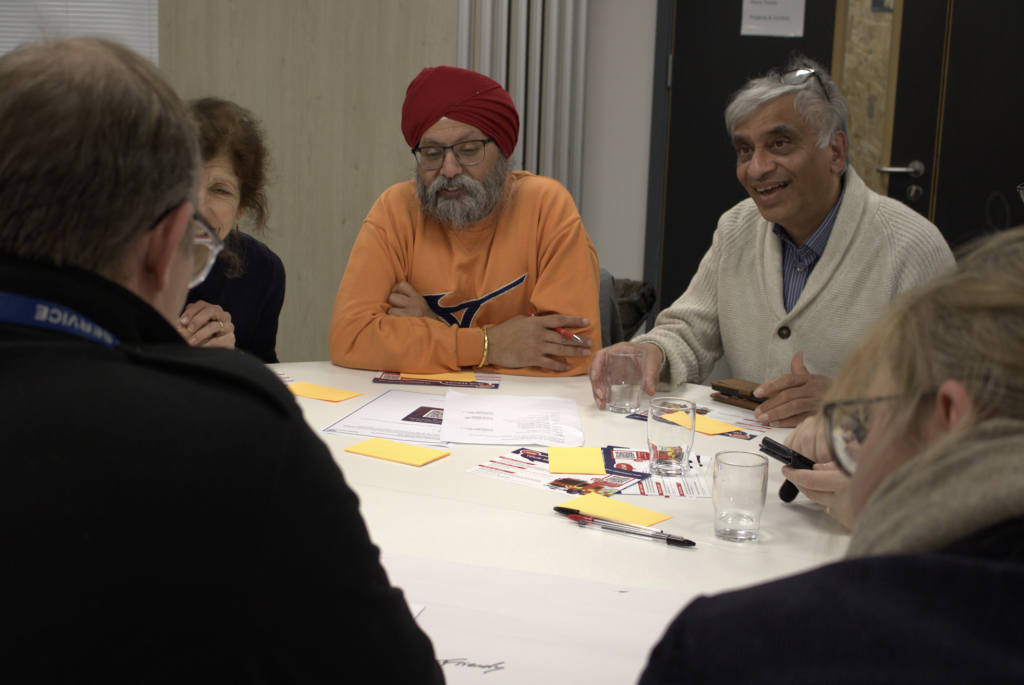
The meeting saw attendees break into groups for round table discussions on how to work together to create safer and healthier neighbourhoods.
Revd Canon Nick Ralph said, “It’s important to get people together across faith boundaries because we have a lot in common and a lot to share and there is no other way for that to be communicated. I hope that it will enable the public sector authorities, particularly police, fire, ambulance and the local authorities to understand the importance of faith and how many people of faith they have in their communities. Sometimes they can assume it’s a fringe activity and if you look at the numbers, probably the majority of people express some faith of one sort or another and that’s often forgotten by the policy makers. It’s an opportunity to bring people together and do something.”
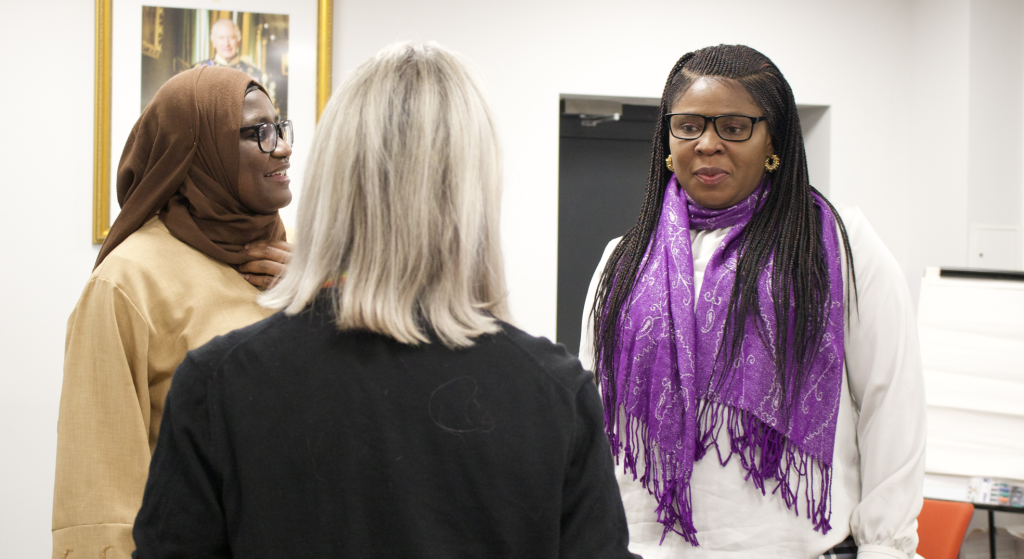
Jenny Coleman from Southampton Street Pastors said, “I think we’re so diverse that we need to understand each other as communities, and I think so much more can be achieved by working collectively and understanding the needs of particularly Southampton. It’s forever changing and we need to keep ahead of the trends to make sure that we are doing all that we can. You might come to a meeting like this, make one or two connections and gather information that helps you go back and do something in a much better way.”
Although this event was a first for the Hampshire and Solent region, there have been initiatives of this kind for decades in the region.
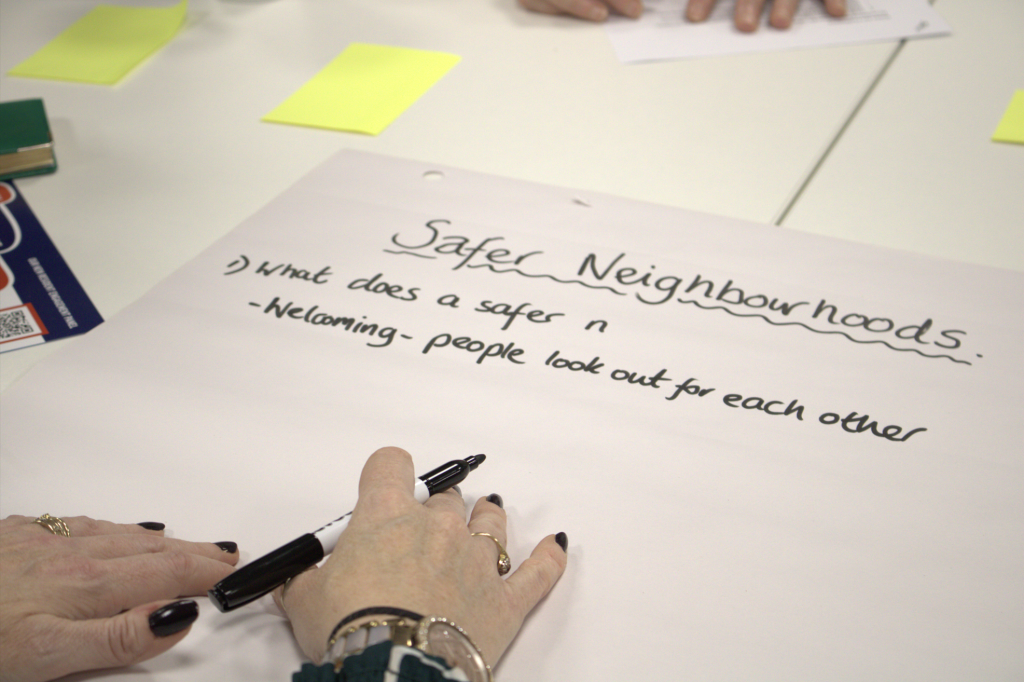
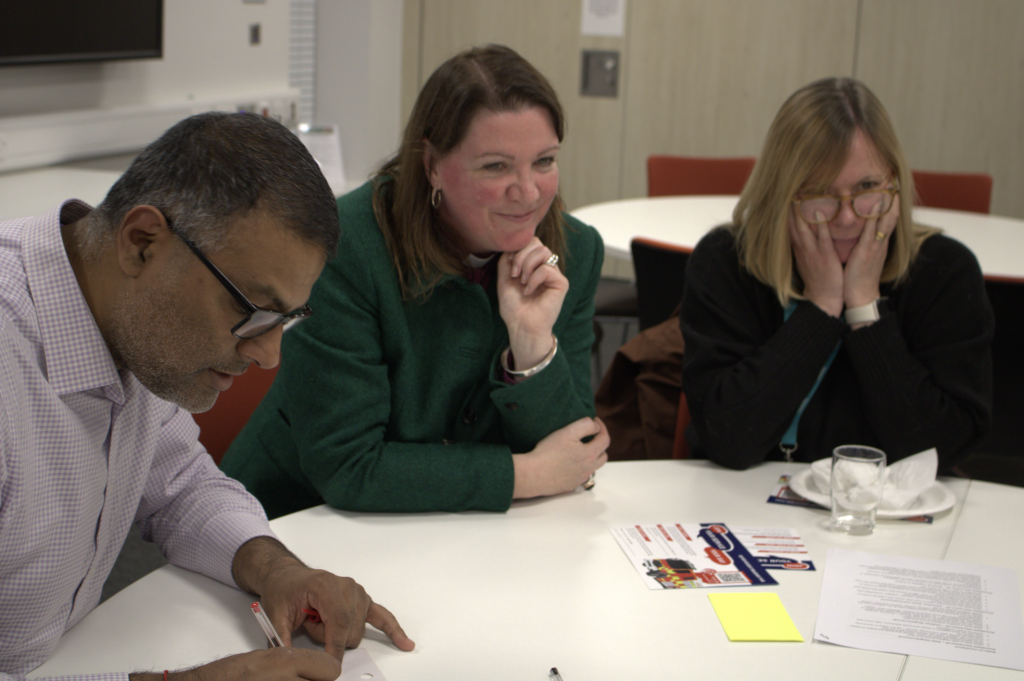
Dr Parvin Damani is Chair of the Southern Area Interfaith Network and first set up the Southampton Council of Faiths. She said, “Providers often live in a secular society which is all about mind and logic and so faith groups can bring the heart. They can help providers to have better outcomes and save money. We must try and be inclusive of faith communities and their issues and listen to them because they themselves have many help networks within their communities which often people don’t know about. So, I think it’s very important that there is this dialogue and to have hope for change.”
It’s hoped this is the first of many meetings to create strong bonds, increase co-operation, and lead to collective action for good.

